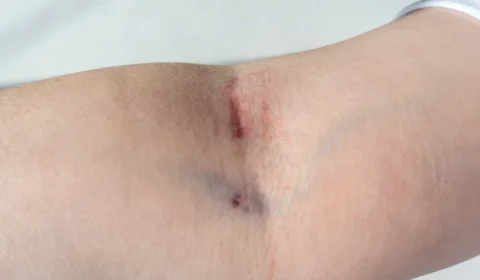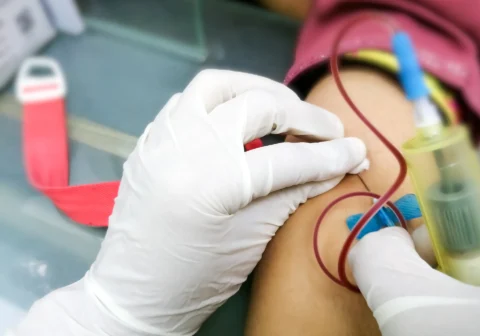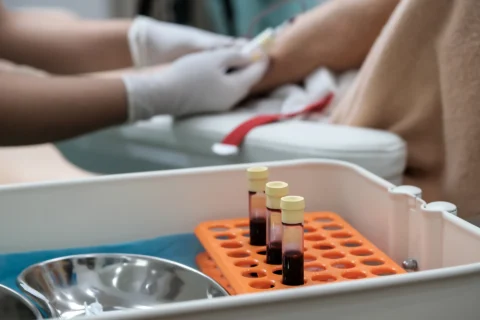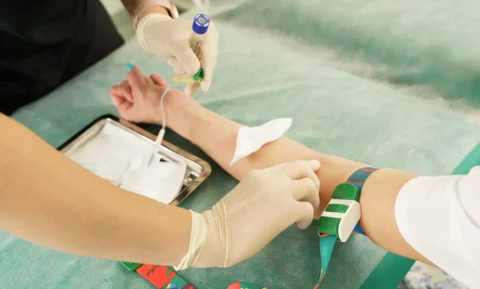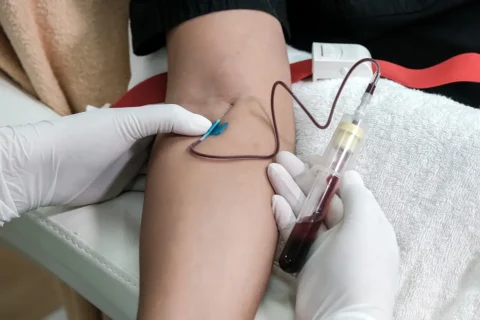Botox is a popular aesthetic procedure, offering a competitive demand and rich opportunities for honing your skills and expanding your career. Because of this, many aspiring Botox injectors flock to training programs, but in some locations, only medical professionals can enroll in a Botox training course. Fortunately, some areas allow Botox training for non-medical students, where it offers ample lectures, regulations, and hands-on training sessions.
So what should you know about your Botox training course for non-medical professional students? A Botox course for non-medics allows a student without a background in aesthetic medicine or any medical training to obtain a Botox certification for conducting Botox treatments. Students may expect to learn about the facial anatomy and danger zones, holding consultations, performing injection techniques, managing side effects, and possible risks.
How to Get Botox Training for Non-Medics
Only a medical professional is usually eligible to enroll in a Botox injection training program and an advanced course on the toxin, like a physician assistant or registered nurse. Because of this, beauty therapists and other aspiring Botox injectors become more challenged in learning about the aesthetic procedure and receive the right certifications to start their own practice.
The good thing is there are still training providers that open their Botox treatment courses even to students without a background in medical aesthetics. Those wanting to obtain a Botox certification can enroll in a Botox training program, even without a background in medical training. They only need to look for a reliable training provider, meet the requirements, pay the necessary fees, and finish their course.
1) Look for A Training Provider
You should look for a training provider that allows non-medical students to enroll in their Botox courses. Some states and academies or schools are strict about not allowing non-medics to enroll in their program.
Botox might be a non-surgical procedure, but it involves injecting botulinum toxin into specific muscle groups to temporarily relax them, limiting excessive movements that cause fine lines and wrinkles. This type of procedure requires a command in using the syringe and knowledge of facial anatomy.
Many Botox training course providers still provide classes to non-medics. You should carefully research the facility and look up the topics and methods of lectures. You should opt for training programs with in-depth lessons and hands-on training.
2) Meet the Requirements
The requirements for Botox training for non-medical students vary per training provider, government recommendations, or regulations imposed by insurance companies. But most facilities qualify enrollees with an NVQ level 3 certification in beauty therapy and those with experience working with needles and other related industries.
The term “non-medic” refers to an enrollee who isn’t a doctor, dentist, or nurse practitioner. Aside from beauty therapists, non-medics include pharmacists, chiropractors, paramedics, and others.
3) Pay the Necessary Fees
Process your enrollment by submitting the necessary paperwork and settling your fees. The cost of Botox or dermal filler training programs depends on the facility – those with recognition and reputable faculty might carry a hefty price tag. The cost of Botox training for non-medical students ranges from $1220 to $3700 and might even become more expensive for more prestigious training providers with more in-depth lectures.
4) Attend Your Classes
You can fulfill your aspirations of becoming an expert injector by attending your Botox classes. A Botox course may take different setups to accommodate students who also juggle their careers – classes may be held online and practical live demonstrations.
When choosing your classes, experts recommend opting for hands-on training with close supervision from your mentor. A Botox course with limited students is also better than those with many attendees – this allows you to receive more thorough management from your trainers.
What You’ll Learn From Your Botox Training
Non medics training programs for injectables allow a student without medical training to receive a dermal filler or Botox certification. This permits them to start a practice or career in Botox treatment, supposedly equipped with the necessary knowledge and skills to conduct a procedure safely.
You can expect to learn the overview of Botox, the facial anatomy and danger zones, and how to hold consultations. You can also learn the accurate Botox injection techniques, risks of the aesthetic procedure, side effects, and how to treat it.
Overview
If you’re enrolled in a Botox training program for non-medics, you can expect to learn the basics of Botox. You’d know how Botox works and where injectors administer it to reduce the appearance of fine lines and wrinkles. It’s important to note that not all treatment areas are recommended for Botox – some are best treated with dermal fillers.
Facial Anatomy and Danger Zones
Botox relaxes overworked muscles on the face to limit movements causing lines and wrinkles. Because of this, students must identify muscle groups, determine their functions, and locate them to administer the toxin precisely. Knowing the danger zones is also important for a safe and successful aesthetic procedure – injecting the wrong muscles can paralyze the wrong muscles, affecting the results and the customer’s lifestyle.
Holding Consultations
Non-medical students attending their Botox course will also be taught how they should hold consultations for customers. These involve communication skills for explaining the aesthetic procedure to the customers, along with the risks and side effects. You should also determine how to implement the customer’s aesthetic goals and provide recommendations.
An advanced Botox course might also involve determining the accurate units of botulinum toxin to inject and reading the label per brand. Each brand of botulinum toxin has a different dilution or reconstitution of the solution.
Injection Techniques
The success of Botox treatments also depends on the injector’s skill. Because of this, learning the different injection techniques is also necessary for your advanced Botox course. You should aim to have an exceptional command of the syringe and inject the solution at accurate locations.
Possible Risks
Your aesthetic training on Botox will also cover the possible risks that come with the procedure. Advanced Botox training attendees will also learn about these risks, so they can avoid them as much as possible once they start their aesthetic practice.
Side Effects and Managing Them
Some customers are still anxious about the possible side effects of Botox. As Botox injectors in training, students should learn to explain to them the side effects to expect and how to manage them. They can also expect to discuss cases that need urgent medical attention.
Botox Treatment Regulations
As a popular treatment, Botox is governed by regulations to ensure the safety of the customers. Once you start training to become a Botox injector, you’d also learn about these protocols. This will also keep you and your practice secure from possible accidents.
Botox Training: Medics VS. Non Medics According to Experts
Some states and training providers are strict about only allowing medical professionals to undergo Botox training and receive a level 7 certification. It’s not much of a secret that non-medical students taking up Botox courses raise a few eyebrows due to questions regarding their practice and knowledge about aesthetic medicine, insurance coverage, and possible risks.
But some experts also maintain that this shouldn’t be the case. Botox training facilities should deliver exceptional courses to equip qualified medical and non-medical students with superior command in conducting the procedure.
Some Botox instructors have registered their stances about the competency of non-medical students in conducting Botox injections and the differences in their Botox training between medical professionals.
Competency of Non-Medic Botox Injectors
There’s no denying that some Botox injectors have already conducted treatments, even without adequate training or passionate devotion to the craft even after they’ve finished their courses – this poses risks to a customer’s procedure, affecting their appearance and health.
However, experts have maintained that this shouldn’t restrict qualified non-medical students from undergoing the training, especially when government regulations have already permitted them. This situation can happen to any Botox injector lacking knowledge, both with medical background and without.
Some experts have maintained that the customer’s safety and satisfaction must be the priority, so Botox injectors with a background of medical training must be supportive. Medical and non-medical Botox specialists must work together as peers and share necessary information on how they can improve in conducting the treatment.
As far as competency is concerned, non-medical Botox injectors can also establish a reputable and successful aesthetic practice. This is provided that they undergo proper training and have the same devotion to the industry by continuously honing their craft and keeping updated on the trends.
On the other hand, medical training can be an advantage in conducting Botox treatments, but there’s still a significant aspect in the practice of facial anatomy and beauty – this is where beauty therapists may be at an advantage.
Difference Between Non-Medic and Medic Botox Training
Training between non-medic and medic students may vary per training provider, but it wouldn’t be too different – they will still be taught with utmost detail on facial anatomy, foundation Botox courses and advanced courses, injection techniques, and more. Both non-medical and medical students have the risk of failing their procedure if they lag in the needed lessons to learn and fail to improve their skills.
Not all experience and knowledge in medical training can be carried into the practice of Botox treatment, which requires utmost attention or focuses on facial anatomy and the effects of the toxin. This is especially when medical practice requires an understanding of every part of the body as a whole. Similarly, non-medics must complete their course from reputable training providers to conduct their treatments safely and successfully.
Non-medical and medical Botox injectors must continue honing their skills, even after they’ve finished their courses. They must prioritize the customer’s safety by observing hygiene during procedures and keeping utmost attention on their craft because both injectors may still make mistakes and have the customer run into complications, regardless of the background.
Laws You Should Know Before Your Botox Training
Once you’ve considered starting your Botox practice, you’ll be governed by the regulations that dictate the aesthetic industry. Ensure following these laws to protect not only your customers but also yourself and your practice. These laws involve:
- needing a certification
- using accurate titles and avoiding misleading ones
- providing consent forms
- following Botox regulations
Regulations on Botox may still vary depending on the location. Ensure looking up what your state imposes on Botox and other injectable treatments. You may also consult your legal advisers to be sure, though these laws will be discussed in your training.
Check Out Our Botox Training for Non-Medics at FACE Med Store
There are still many training providers that also open their Botox course programs to non-medical practitioners, provided they still meet the requirements. These lessons are just as met with utmost attention and supervision for mentors and peers to ensure learning for conducting safe and successful procedures.
FACE Med Store has been a trusted partner of many practices for providing high-quality supplies at reasonable rates. We also offer Botox training courses open for non-medical aspirants. This course is just one of the many educational packages we have, lectured by reputable specialists in the industry – you can visit our website and browse our catalog to check out what we can offer for your aesthetic training.
